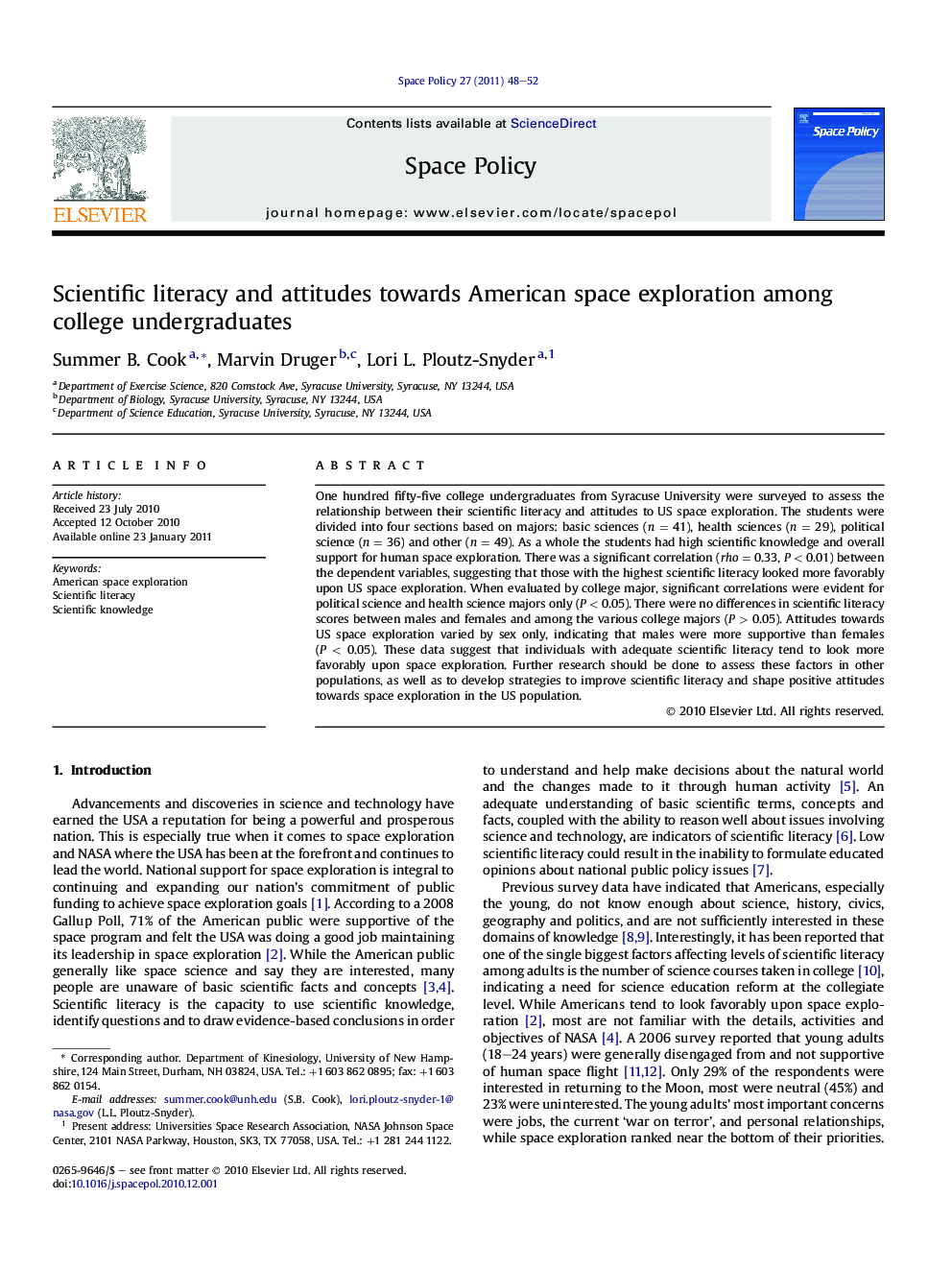| Article ID | Journal | Published Year | Pages | File Type |
|---|---|---|---|---|
| 1131016 | Space Policy | 2011 | 5 Pages |
One hundred fifty-five college undergraduates from Syracuse University were surveyed to assess the relationship between their scientific literacy and attitudes to US space exploration. The students were divided into four sections based on majors: basic sciences (n = 41), health sciences (n = 29), political science (n = 36) and other (n = 49). As a whole the students had high scientific knowledge and overall support for human space exploration. There was a significant correlation (rho = 0.33, P < 0.01) between the dependent variables, suggesting that those with the highest scientific literacy looked more favorably upon US space exploration. When evaluated by college major, significant correlations were evident for political science and health science majors only (P < 0.05). There were no differences in scientific literacy scores between males and females and among the various college majors (P > 0.05). Attitudes towards US space exploration varied by sex only, indicating that males were more supportive than females (P < 0.05). These data suggest that individuals with adequate scientific literacy tend to look more favorably upon space exploration. Further research should be done to assess these factors in other populations, as well as to develop strategies to improve scientific literacy and shape positive attitudes towards space exploration in the US population.
